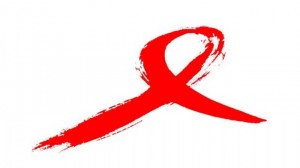 PORT OF SPAIN, Trinidad (CMC) — At least five primary school students have tested positive for the HIV virus and several others have engaged in sexual activities “willingly”, Parliamentarians here have been told.
PORT OF SPAIN, Trinidad (CMC) — At least five primary school students have tested positive for the HIV virus and several others have engaged in sexual activities “willingly”, Parliamentarians here have been told.
Appearing before a Joint Select Committee (JSC) of Parliament on Wednesday, officials from the Ministries of Education and Health confirmed that the five students, aged seven to 11, and including three girls, were receiving treatment.
“They will remain in the system unless their health factors should warrant that they should be removed,” said Guidance Officer in Ministry of Education Darlene Smith, noting that the ministry believes in inclusive education and they should be treated in the same manner as other students.
Addressing the JSC on the incidence of sexually transmitÂted diseases (STDs), specialist medical officer Dr Aruna Divakaruni said a significant number of school-aged children had sought the services of the Queen’s Park Counselling Centre.
Most of them are school children. They have older partners. Most of the time they are abused by stepfathers or a brother or cousin or somebody like that,” she said, adding “others engaged in sexual activity willingly”.
The JSC was told that despite school children Âengaging in sexual activity and being at risk for various STDs, the Ministry of Health has been meeting with resistance from schools and parents regarding the teaching of sexual education by qualified medical professionals.
“Right now we don’t have that arrangement, but a few years back we honestly tried. We sent our trained doctors to schools to teach children, even to teach teachers and other staff members about STDs. I, myself, attended quite a few schools to teach them and to educate them to include awareness of STDs in children, but we faced a lot of resistance from the schools and teachers and even from parents of the children.”
Dr Divakaruni said many parents believed pupils were being educated “too much” about sex and STDs, which would encourage them to go out and engage in sexual activity.
She said efforts were also made to distribute condoms to pupils in order to encourage safe-sex practices, but this too was met with resistance.
Chief Education Officer Harrilal Seecharan said there has been consultation with stakeholders, including the National Parent-Teacher Association and the various denominational boards, and the level of resistance to Âsexual education is being “broken down”.
Seecharan said pupils are at present exposed to sexual education at both secondary and primary school levels.
“Within the curriculum, we have a health and family life education programme, and one of the modules within that deals with sexuality and sexual health education. At the secondary level, it is implemented between Forms One to Three; at the primary school it is infused so age-appropriate strategies are used.”
